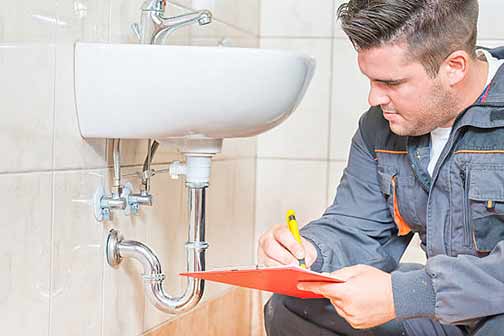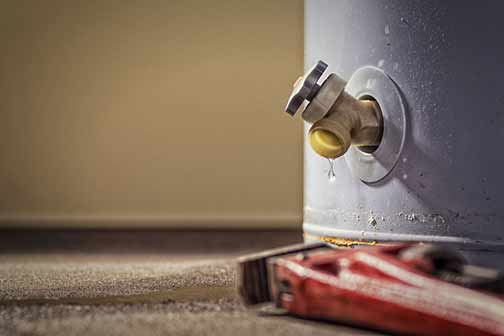
As winter approaches, it is crucial to ensure that your home’s plumbing system is in top condition. A thorough plumbing inspection can help you identify potential issues and address them before they become major problems. This proactive approach will not only help you avoid plumbing failures but also keep your home warm and dry throughout the cold months.
By scheduling an inspection before the harsh weather sets in, you can save yourself from the inconvenience and expense of emergency repairs.
Understanding Common Winter Plumbing Problems
Winter can bring a host of plumbing problems that can disrupt your daily life and cause significant damage to your home. Some common issues include:
- Frozen pipes: When temperatures drop, the water inside your pipes can freeze, causing a potential burst pipe emergency. This can lead to extensive water damage and costly repairs.
- Water heater failure: Cold weather can put extra strain on your water heater, leading to breakdowns and insufficient hot water supply. A malfunctioning water heater can make it difficult to stay warm and comfortable during the winter months.
- Clogged drains: Holiday gatherings and increased cooking can lead to more food waste and grease going down your drains, causing clogs. These blockages can result in slow drainage and unpleasant odors.
- Leaking faucets and pipes: Cold temperatures can cause seals and joints to contract, leading to leaks. These leaks can waste water and increase your utility bills.
Benefits of a Pre-Winter Plumbing Inspection
Scheduling a plumbing inspection before winter offers several benefits:
- Early detection of issues: A professional plumber can identify potential problems before they escalate, saving you time and money on repairs. By catching issues early, you can avoid the stress and expense of dealing with emergencies.
- Improved efficiency: Ensuring your plumbing system is in good condition can help it operate more efficiently, reducing your energy bills. A well-maintained system will use less water and energy, which can lead to significant savings over time.
- Peace of mind: Knowing that your plumbing system is prepared for winter can give you peace of mind and help you avoid unexpected emergencies. You can rest easy knowing that your home is protected from potential plumbing disasters.

What to Expect During a Comprehensive Plumbing Inspection
A comprehensive plumbing inspection typically includes the following steps:
- Checking for leaks: The plumber will inspect your pipes, faucets, and fixtures for any signs of leaks or damage. This includes examining areas that are prone to leaks, such as under sinks and around appliances.
- Inspecting the water heater: The plumber will check the water heater for any issues, such as sediment buildup, corrosion, or faulty components. They may also flush the water heater to remove any sediment that has accumulated over time.
- Examining the drains: The plumber will check your drains for clogs and ensure they are flowing smoothly. They may use specialized hydro jetting service to remove any blockages and improve drainage.
- Assessing the pipes: The plumber will inspect your pipes for any signs of wear and tear, such as corrosion or cracks. They may also check for proper insulation to prevent freezing.
- Testing the water pressure: The plumber will measure the water pressure to ensure it is within the recommended range. Proper water pressure is essential for the efficient operation of your plumbing system.
Tips for Maintaining Your Plumbing System During Winter
In addition to scheduling a plumbing inspection, there are several steps you can take to maintain your plumbing system during winter:
- Insulate your pipes: Use pipe insulation or heat tape to protect your pipes from freezing temperatures. This is especially important for pipes located in unheated areas, such as basements and crawl spaces.
- Keep your home warm: Maintain a consistent temperature in your home to prevent your pipes from freezing. Avoid setting the thermostat too low, even when you are away from home.
- Allow faucets to drip: Letting your faucets drip slightly can help prevent pipes from freezing by keeping water flowing. This is particularly important during extremely cold weather.
- Seal gaps and cracks: Check for any gaps or cracks around your home and seal them to keep cold air out. Pay special attention to areas around windows, doors, and pipes that enter your home.
- Disconnect outdoor hoses: Remove and store any outdoor hoses to prevent them from freezing and causing damage to your pipes. Shut off the water supply to outdoor faucets and drain any remaining water.
Choosing a Professional Plumber for Your Pre-Winter Inspection
When selecting a plumber for your pre-winter inspection, consider the following factors:
- Experience and qualifications: Choose a plumber with extensive experience and the necessary qualifications to perform a thorough inspection. Look for certifications and memberships in professional organizations.
- Reputation: Look for a plumber with positive reviews and a solid reputation in your community. Ask for recommendations from friends, family, and neighbors.
- Availability: Ensure the plumber is available to perform the inspection before winter arrives. Schedule your inspection well in advance to avoid the last-minute rush.
- Pricing: Compare quotes from different plumbers to find a competitive rate for the inspection. Be sure to ask about any additional fees or charges that may apply.
Conclusion: The Smart Choice for a Warm and Dry Winter
Scheduling a plumbing inspection before winter is a smart investment that can help you avoid costly repairs and keep your home warm and dry. By addressing potential issues early, you can ensure your plumbing system operates efficiently and reliably throughout the cold months.
Don’t wait until it’s too late – contact a local plumber today to schedule your pre-winter inspection. Taking these proactive steps will provide you with peace of mind and help you enjoy a comfortable, trouble-free winter season.

